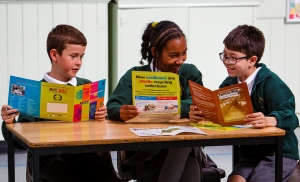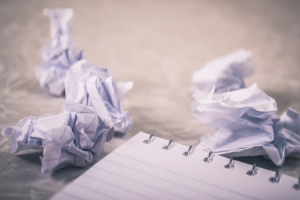We have produced some Poetry Resources to help you teach children how to write great poetry about waste. These include some hints and tips from experts, some sample lesson plans for all key stages, printable sheets of poems about waste to use in your classroom and some useful website resources and books.
We are looking forward to seeing the poetry that this will help your children create, whether you are in a classroom, at home or in a home school library group.
As part of the Poetry Competition we ran in the Autumn Term in 2019 we created some resources to inspire great poetry writing. These are now available here.
Waste Poetry Writing Tips (pdf)
Read about our 2020 Waste Poetry Awards Ceremony here and read all our winning poems here.
Ideas to help write poetry about waste
It can be easier for children to write poetry if there is a format or story to frame the poem around. Have a look at our ideas below to get some inspiration.
Ask a River
Imagine following a piece of plastic litter in a river. What do you see? Where do you go? What kind of litter is it? Who dropped it? Think of some words and phrases that help convey the sights and sounds of the places the river passes. What about the noises the river makes as it moves? Think of some good words for the sounds. Use these to make a poem about the piece of plastic litter travelling down the river into the sea.
Watch the poet Valerie Bloom read her poem, I asked the river, for inspiration.
Follow a rubbish truck
Imagine you are a cat watching the refuse collectors collect the recycling from everyone’s homes. What sights and sounds would you experience if you joined them on their journey through the streets and lanes of Devon? Read The Patchwork Cat by Nicola Bayley for some ideas.
What’s going on inside the EfW plant?
You are an alien and you land next door to the Energy from Waste plant in Exeter. Explain in your report home what is going on.
Turtles!
Imagine yourself as a turtle in a sea full of plastic. You are trying to find your lunch. What do you find?
Devon based author Jo Earlam wrote Tuamor the Turtle to tell the story of plastic in the oceans to children around the world. This video (filmed in lockdown) shows the author reading her story.
Landfill in South America
You are standing on the edge of a landfill site in South America. What is it like?
Watch the video for the inspiring story of an orchestra made from junk founded next to a huge landfill site in Paraguay.


